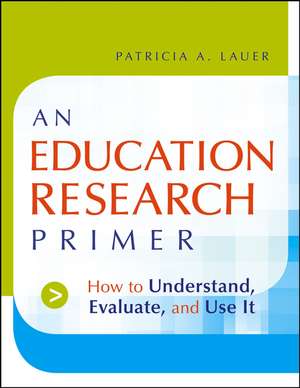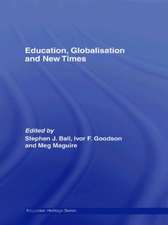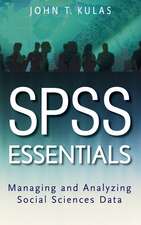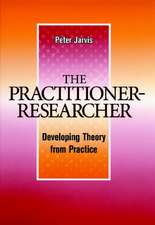An Education Research Primer – How to Understand Evaluate and Use It
Autor PA Laueren Limba Engleză Paperback – 8 iun 2006
Produced with the assistance of Mid-continent Research for Education and Learning (McREL), one of the nation's foremost educational research and training organizations, An Education Research Primer gives educators a basic understanding of educational research, its guiding criteria, and its relevance to school-based decision-making. In clear and concise language the book summarizes the various types of educational research, explaining their diverse purposes and methods. For example, the difference between experimental research (studies involving control group trials) and descriptive research (based on descriptive information and relationships) isexplained, including how each is designed to address different types of research questions, and why each might have different applications. The book also describes what's involved in setting up a comparison control group and how some studies have randomized control groups while others do not. In addition, the book describes the different types of data collection methods used in research and how this can bear on the research findings.
Particular attention is given to the scientific criteria that support the research and why this is important to educators. The book then provides step-by-step information on how to evaluate, analyze, and assess the validity of research studies, whether it is experimental research, descriptive research, or research presented in a literature review. Educators learn to ask critical questions: Did the research design match the research question? Were the data collection methods reliable? How were the conclusions summarized? Were all the variables or rival explanations accounted for? In addition, the book provides tools for accessing relevant research, suggestions for reading research reports, and practical guidance for understanding statistics. The discussion includes extensive research examples and is linked to practical policy and programmatic questions throughout.
An Education Research Primer demystifies educational research and is an indispensable resource for practicing and aspiring educational researchers, for school leaders and teachers, and for educational policy makers who must comply with today's educational standards
Praise for An Education Research Primer
"The examples of how to critique published research--especially research using quasi-experimental designs--are the clearest and most detailed I have every read. My students found it very helpful."
--Martin L. Tombari, professor, Department of Educational Leadership and Policy Studies, University of Denver
"Finally, Dr. Lauer has written a book for all educators, parents, and policy makers that provides all of the information and explanation needed to easily understand and interpret educational research."
--Charles DeRemer, assistant superintendent for instructional services, Fargo Public Schools, Fargo, North Dakota
"Teachers, principals, superintendents, policy makers, and anyone new to educational research will find An Educational Research Primer an invaluable resource. It demystifies basic research principles and methods by providing numerous examples and other clarifying materials."
--Vickie Grant, director of school improvement and assessment, Shannon County Public School District #65-1
"The book provides a useful and usable resource for everyone who needs to use research for improving educational policy and practice. It is a clear, coherent, user-friendly guide to understanding scientifically based research at all levels of education. This primer should part of an educator's professional library."
--Joseph H. Simpson, deputy executive director, Council of Chief State Schools Officers
Preț: 246.25 lei
Nou
47.12€ • 49.10$ • 39.02£
Carte tipărită la comandă
Livrare economică 03-17 aprilie
Specificații
ISBN-10: 0787983233
Pagini: 184
Dimensiuni: 222 x 275 x 11 mm
Greutate: 0.52 kg
Editura: JOSSEY BASS
Locul publicării:Hoboken, United States
Public țintă
- School leadership professionals; educational policy makers, and teachers.
- Educational researchers; professors of education; students of teaching and educational leadership.









